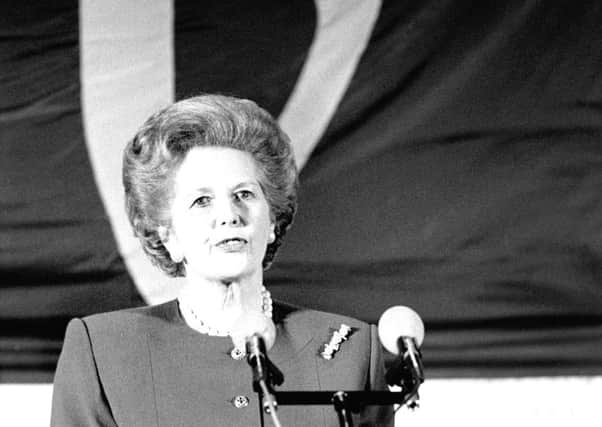Thatcher '˜Eurosceptic' speech was never meant to be anti-EU, documents show


A note to Mrs Thatcher from Hugh Thomas, then chairman of the Centre for Policy Studies think-tank, set out how the Prime Minister might approach her Europe speech.
The document, from June 1988, noted that Britain was “doing well” within the European Community but sought to challenge federalist ideas.
Advertisement
Hide AdAdvertisement
Hide AdMrs Thatcher’s Bruges speech was delivered in September 1988.
“The implications of the present moves in Europe – towards ‘open frontiers’, a common European currency, even a European Central Bank, and the Franco-German defence collaboration – have not, it seems to me, been thought through,” wrote Mr Thomas.
“The people who have thought continually about Europe seem to be the federalists and they, I suspect, did their original thinking 30 years or more ago.
“Britain determined to enter the Community and make the best of the institutions which were there, and we are doing well. But is there not a case for a really deep consideration? The ‘Europe of Nations’ has never been carefully worked out, to my knowledge.
“We could be at a turning point in our history.
“Have we thought adequately about it?”
Chris Collins, of the Margaret Thatcher Foundation, said Mr Thomas was a “profoundly Europhile person” and an inspiring force behind the Bruges speech.
“I think it is still true, as a historical fact, that this begins the trend towards a more Eurosceptical outcome,” he said.
“It’s not a predetermined outcome of course, no-one knows where this is going, and I think you can add to that that it’s partly the reception of the speech that determines this.
“When you give a speech, what you intend to do and how people take the speech are obviously different things.”